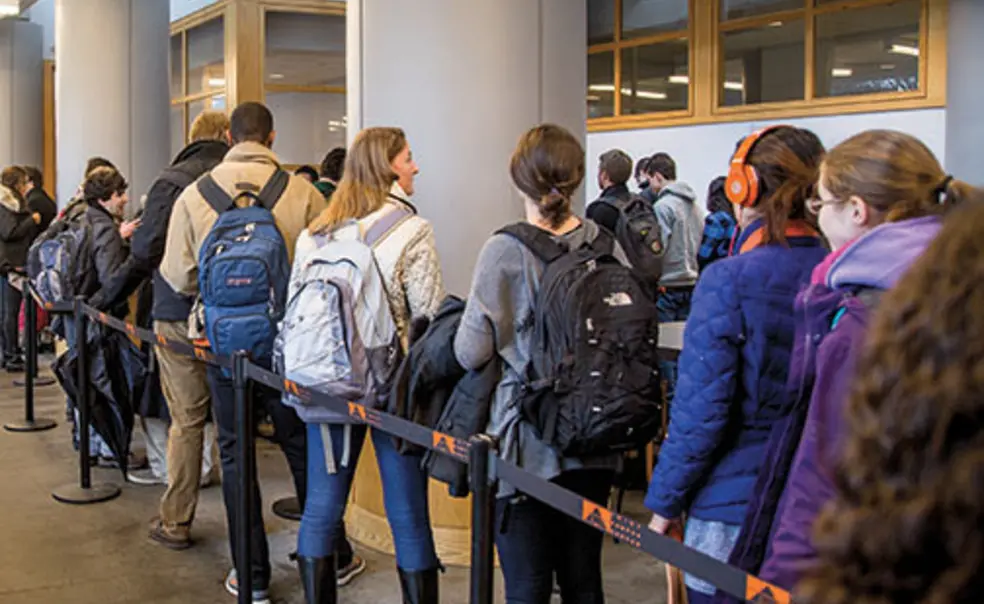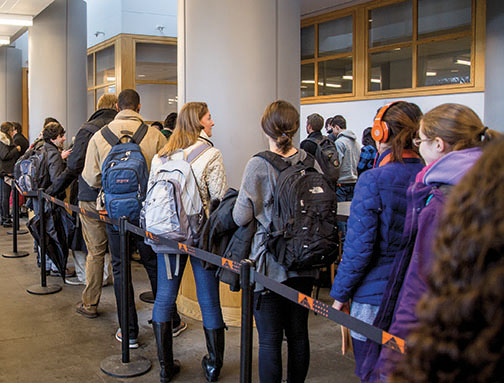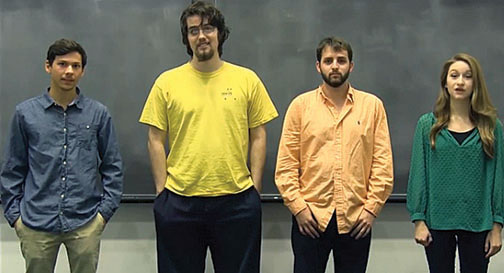Targeting Meningitis B
With eight cases reported in eight months, thousands of students receive vaccine
The University announced that 5,268 people were vaccinated in December as part of an attempt to stop the spread of meningitis B, a strain that has infected seven Princeton undergraduates and one visiting high school student since March. The total was 91 percent of those eligible for the vaccine.
The vaccine, known as Bexsero, is used in Europe and Australia but has not been licensed in the United States. Upon a recommendation from the Centers for Disease Control and Prevention, however, and with approval from the U.S. Food and Drug Administration, the University has made it available to three groups: all undergraduates; graduate students living in undergraduate dormitories, the Graduate College, or its annexes; and others in the University community who are at special risk, such as those with weakened immune systems.
The first doses of the vaccine were administered Dec. 9–12, and a booster dose will be given in February. Bexsero, which is manufactured by the Swiss pharmaceutical company Novartis, is being offered free of charge and was paid for from the University’s contingency fund, President Eisgruber ’83 said at a Dec. 9 meeting of the Council of the Princeton University Community. Princeton has imported 12,000 doses.
Although New Jersey requires all college students living in dormitories to be vaccinated against meningitis, the vaccines available in this country do not protect against meningitis B. Because the meningitis B vaccine does not contain live virus, there is no risk that anyone will contract the disease from receiving the vaccine, said Robin Izzo, the University’s director of environmental health and safety.
Four of the eight students who have contracted meningitis B appeared in a short video, produced by the Student Health Advisory Board and posted on the University’s website, urging their classmates to get the vaccine.
“It’s just stupidity not to get it,” Frances Steere ’16 said at Frist Campus Center shortly after receiving her shot.
The University also has urged all students to take precautions against contracting or spreading the disease, such as washing hands regularly, covering their mouths when coughing, and not sharing drinking cups or eating utensils.
The first local case was reported on March 25 and the most recent on Nov. 21. Seven of the eight students have recovered fully; the eighth was still receiving treatment in mid-December. Four cases of meningitis B also were reported at the University of California, Santa Barbara; CDC officials said they were not related to the outbreak at Princeton.
Meningitis, an inflammation of the membranes surrounding the brain or spinal cord, can be spread only by close physical contact or an exchange of bodily fluids such as saliva. Symptoms of meningitis B include a stiff neck, high fever, vomiting, rashes, and sensitivity to light. Untreated, it can cause brain damage, paralysis, hearing loss, or severe tissue damage in hands and feet. Meningitis B accounted for one-third of the 480 reported cases of meningitis in the United States in 2012, according to the CDC.
In a conference call with reporters, CDC officials said they did not believe Princeton students posed a risk of spreading the disease to others, such as friends or family, when they left campus over break.














No responses yet